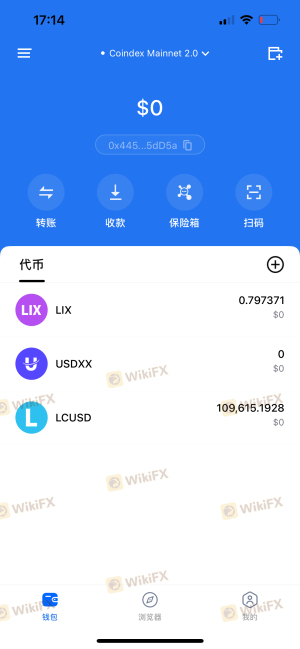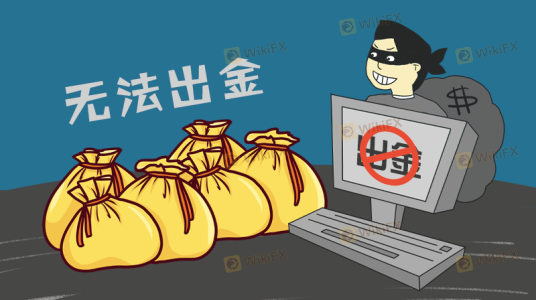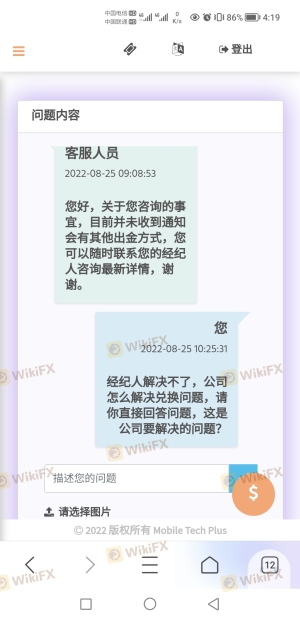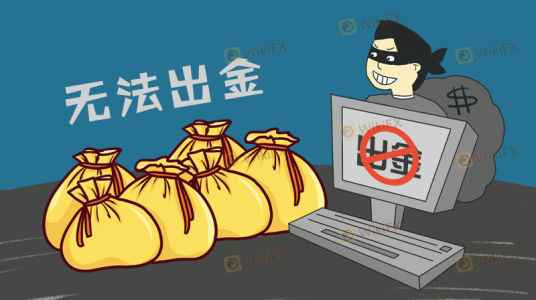Is TR safe?

Pros
Cons
Is TR Safe or Scam?
Introduction
TR is a forex broker that has gained attention in the online trading community, but its reputation is marred by allegations of fraudulent activities and a lack of regulatory oversight. As the forex market continues to grow, traders must exercise caution and thoroughly evaluate brokers to protect their investments. This article aims to provide a comprehensive analysis of TR, examining its regulatory status, company background, trading conditions, customer experiences, and overall risks associated with engaging with this broker. The investigation is based on credible sources, including user reviews, regulatory databases, and expert assessments.
Regulation and Legitimacy
The regulatory status of a forex broker is critical in determining its legitimacy and safety for traders. TR operates without valid regulatory oversight, which raises significant concerns about its credibility and the protection of client funds. The following table summarizes the core regulatory information for TR:
| Regulatory Authority | License Number | Regulatory Region | Verification Status |
|---|---|---|---|
| None | N/A | N/A | Unverified |
TR has been identified as an unregulated entity, with all licenses reportedly expired. This lack of oversight means that traders have no recourse in case of disputes or fraudulent activities. Regulatory bodies play a crucial role in ensuring that brokers adhere to ethical practices, and the absence of such oversight significantly heightens the risk for investors. Additionally, TR has been listed on various scam broker lists, indicating a high level of risk associated with trading through this platform.
Company Background Investigation
TR's company history and ownership structure are essential components in assessing its reliability. Unfortunately, detailed information about TR's origins and development is scarce. The company appears to lack transparency regarding its leadership and operational history, which is a red flag for potential investors. The management teams background and professional experience are critical factors that contribute to a broker's trustworthiness. Without clear information about the individuals behind TR, it is challenging to gauge their expertise and commitment to ethical trading practices.
Moreover, the absence of a physical office or contact information further complicates the situation. A legitimate broker typically provides comprehensive information about its operations, including management profiles and corporate history. The lack of such disclosures raises concerns about the company's transparency and accountability, making it imperative for traders to be cautious when considering TR as a trading partner.
Trading Conditions Analysis
An evaluation of TR's trading conditions reveals a concerning picture. The broker's fee structure and trading costs are essential factors that can impact a trader's profitability. TR's overall fee structure is reportedly opaque, with many users citing unexpected charges and high spreads. The following table compares TRs core trading costs with industry averages:
| Fee Type | TR | Industry Average |
|---|---|---|
| Major Currency Pair Spread | High (e.g., 3-5 pips) | Low (e.g., 1-2 pips) |
| Commission Model | None | Varies |
| Overnight Interest Range | High | Moderate |
The high spreads associated with TR can significantly erode potential profits, making it less competitive compared to regulated brokers. Furthermore, the lack of a transparent commission model raises concerns, as traders may encounter hidden fees that could affect their trading performance. It is crucial for traders to understand the total cost of trading before committing to any broker, and TRs unclear fee structure presents a potential risk.
Client Fund Safety
Client fund safety is paramount when evaluating a broker. TRs lack of regulatory oversight means that there are no guarantees regarding the safety of client funds. A reputable broker typically employs measures such as segregating client accounts, offering investor protection schemes, and implementing negative balance protection policies. Unfortunately, TR has not provided any information regarding these critical safety measures.
The absence of fund segregation means that client funds may not be protected in the event of the broker's insolvency. Furthermore, any historical issues related to fund security, such as complaints about withdrawals or fund mismanagement, exacerbate concerns about the safety of investing with TR. Traders must be vigilant and consider these factors when deciding whether to engage with the broker.
Customer Experience and Complaints
Customer feedback is a valuable indicator of a broker's reliability. TR has received numerous complaints from users, highlighting various issues related to customer service, withdrawal difficulties, and unexpected charges. The following table summarizes the primary complaint types and their severity:
| Complaint Type | Severity Level | Company Response |
|---|---|---|
| Withdrawal Issues | High | Poor |
| Customer Support Delays | Medium | Average |
| Hidden Fees | High | Poor |
Common complaints include difficulties in withdrawing funds, inadequate customer support response times, and undisclosed fees that surprise traders after they have deposited money. For instance, several users have reported that after making an initial deposit, they faced obstacles when attempting to withdraw their funds, leading to frustration and financial loss. The overall negative feedback suggests that TR may not prioritize customer satisfaction or transparency, which is a significant concern for potential investors.
Platform and Trade Execution
The performance of the trading platform and execution quality is critical for a positive trading experience. While TR claims to offer a user-friendly platform, many users have reported issues related to stability, order execution speed, and slippage. A reliable trading platform should provide fast and accurate order execution, minimizing the risk of slippage and rejected orders.
Unfortunately, reports of platform manipulation and poor execution quality have emerged from users, raising concerns about the broker's operational integrity. Traders have noted instances where orders were executed at unfavorable prices, leading to unexpected losses. Such issues can severely impact a trader's ability to manage their investments effectively, making it essential for traders to be cautious when using TR's platform.
Risk Assessment
Engaging with TR presents several risks that potential investors should consider. The following risk scorecard summarizes the key risk areas associated with this broker:
| Risk Category | Risk Level (Low/Medium/High) | Brief Explanation |
|---|---|---|
| Regulatory Risk | High | Unregulated broker with no oversight. |
| Fund Safety Risk | High | No client fund protection or segregation. |
| Customer Support Risk | Medium | Poor response times and unresolved issues. |
| Trading Conditions Risk | High | High spreads and hidden fees. |
To mitigate these risks, traders should conduct thorough research and consider alternative brokers with robust regulatory oversight and transparent fee structures. Engaging with regulated brokers can provide a level of assurance and protection that TR does not offer.
Conclusion and Recommendations
Based on the comprehensive analysis, it is clear that TR poses significant risks for traders. The lack of regulatory oversight, combined with numerous complaints regarding fund safety and customer service, raises serious red flags. The broker's opaque fee structure and questionable trading conditions further exacerbate these concerns.
Potential investors are strongly advised to exercise caution and consider alternative, reputable brokers that are regulated by recognized authorities. Brokers such as [insert recommended alternatives] offer more reliable trading conditions, better customer support, and enhanced fund safety measures. By prioritizing safety and transparency, traders can protect their investments and engage in more secure trading practices.
Is TR a scam, or is it legit?
The latest exposure and evaluation content of TR brokers.




TR Similar Brokers Safe
Whether it is a legitimate broker to see if the market is regulated; start investing in Forex App whether it is safe or a scam, check whether there is a license.
TR latest industry rating score is 1.57, the higher the score the safer it is out of 10, the more regulatory licenses the more legitimate it is. 1.57 If the score is too low, there is a risk of being scammed, please pay attention to the choice to avoid.